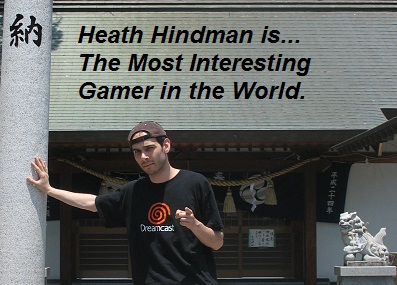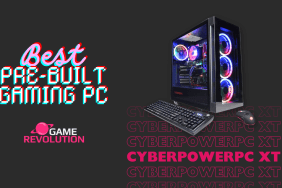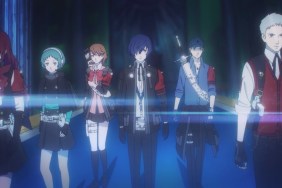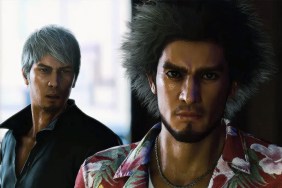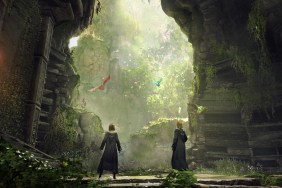He remembers the future while anticipating the past.
It was recently decided that games are officially a form of art. This means little to us in our daily lives and probably doesn't sway the hobby's biggest haters, but it does signify that gaming is gaining recognition as something culturally important. We see more evidence every day—game music is the subject of live concerts all around the globe, we frequently see sitcoms and movies referencing games by their specific titles, and heck, this year's Oscar nominees even included a movie that starred animated versions of iconic game characters. There are still steps to be taken, but owning and playing games these days is far more socially acceptable—even cool—than it was 30, 20, or even 10 years ago. This brings up an important issue: game preservation. If these things are important to our culture, our heritage, and who we are, should we not be doing something to preserve them?
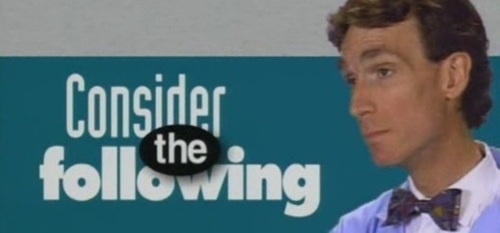
Consider the following: Humanity has lost a hell of a lot of what made us who and what we are. Picking one example, the official version of The Holy Bible is a lengthy text, but what we have is only a small fraction of the things that were written by the scribes, leaders, and other influential figures of those times. Pages and pages—whole books of the canon—have been burned, forcibly changed, or just plain lost. Save your religious debates for somewhere else, by the way. I'm not talking about the validity of Christianity (or any other religion for that matter), the existence of a God or gods, the pros and cons of organized religion, yadda yadda, and those other cans of worms; I'm talking about the collection of writings that has probably had the single biggest impact on the world today.
We can look back and learn about the way ancient people thought, what the common man dealt with in life, and what was culturally valued. It's been a huge influence in Western culture especially, and is at the very least an important historical record. And yet, it's far from complete. Whatever your personal feelings on The Holy Bible (or anything), understanding it has value. Similarly, whatever your game genre preferences or whatever consoles you own, understanding the roots and history of certain franchises, companies, characters, play mechanics, and so on just plain levels you up as a gamer.
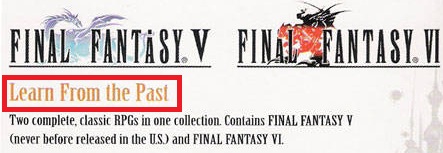
This holds especially true for budding designers and developers out there. Learning from the past can be extremely beneficial, and doing so is made easier if a console can play the games that were released on its elders. In our day and age, when the formats are so similar—when a Sony Blu-ray player plays DVDs—having these options in a box, even a more expensive one, should at least be available.
Understanding the previous eras of film can greatly assist young filmmakers, and yet, half the movies made before the 1950s are now lost forever, gone from any form of existence. The same is true of several TV shows, even whole series, from the '60s and '70s. We can't let that happen to video games. If we start allowing it, or pathetically sit back and do nothing, it completely devalues gaming as anything relevant to our culture or heritage—takes away a lot of what makes it art to begin with.
It's already happened to some, including Panzer Dragoon Saga for the Sega Saturn, one of the most praised and cherished RPGs of all time. It won't be released digitally or in any kind of remake, because the code is gone, lost forever. PlayStation might be a brand of business first and foremost, but there's got to be something more, something human about its legacy. Games can make us scream in anger, jump in terror, and cry tears of genuine sadness. They are clearly a medium worth preserving.
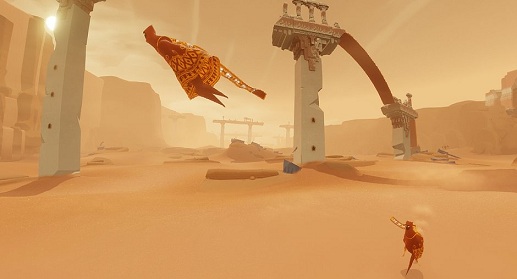
This generation has seen the rise of the independent developer. We've seen thatgamecompany go from a startup not unlike most others to a company synonymous with gaming excellence and a deserving winner of Game of the Year awards. Development tools have become somewhat cheaper and the idea of knowing a programming language isn't just something for "nerds" anymore. Indie game makers can start up a project with the hopes of getting it onto the Xbox Live Marketplace or PlayStation Network and actually making a few bucks and getting some recognition. Considering this, a company could easily gain an upper hand on the competition by making its older, cheaper dev kits readily available and encouraging the indies to make new games.
A lot of independent games that come out these days are not pushing the limits of their system's hardware; while it's not all of them, a decent number of new indie games could have appeared a generation ago, if not more. So why not make it easier for these talented game makers to get in there and join your cause? Gamers would benefit as well, as a plethora of games could be made available to them, probably selling for dirt cheap. We already see great $5 and $10 deals on PSP games and PS2 classics on the PSN store, and these sell—now take that another step and make them new games, for even less money. Such a thing could give rise to the next big name in game development.
For an excellent example of the potential here, one need look no further than Hotline Miami. Everyone's raving about it, with its various awards/nominations and 85 Metacritic score, and yet, look at these visuals:
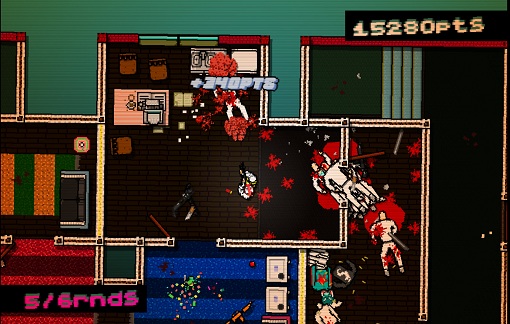
This came out first for PC and will soon branch out, but imagine if something like this (kind of reminds me of the original Grand Theft Auto, actually) had just come out on the PSN for all current PlayStation systems. This game alone would not be a huge selling point for your hardware, but once a platform gets a couple of titles like this, it starts to give it a noticeable leg up on its competitors in the race to win the hearts of the market. All that, from something as simple as indie designers being able to use old dev kits and submit things to the new store, and maybe even print their own discs. Sony asks for a cut, budding devs get their names out there and perhaps make some cash, and gamers get to experience an increased variety of interesting titles. Everybody wins.
I understand the criticism. There will be tech-heads that know more about this than I do, that will tell me all about the cell processors and the different media formats and about how hard it might be to make the PS4 backward compatible all the way back to PSOne for reasons it would take me years of schooling to fully understand. I get it—it's not easy. But if it were easy, a lot more of us would have made our own damn consoles by now. We played golf on the moon, we have phones that take pictures and use the internet, my Blu-ray player plays DVDs, and really, the PS4 playing previous PlayStation games isn't impossible. Heads-up: I'm gonna talk a lot more about PlayStation than Xbox here because there's a longer history and there's more solid PS4 info out right now.
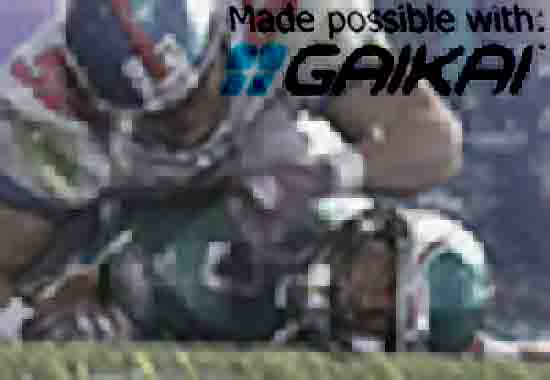
If it's expensive, then make a separate SKU: one with only the streaming backward capability of Gaikai, and another with full hardware-based backward compatibility. Releasing multiple SKUs has become the norm these days, with handhelds and TV consoles alike, so I don't think consumers are as thrown by this idea as they may have been years ago. Feel free to charge a certain price for the former, and a much higher tag for the latter. Know which one I'd buy? I'd definitely buy the latter.
The lower-priced one exists for people who are okay with not having hardware-based BC, and the latter can be there for those who are willing to pay more for it. (Just me, here, but I'd pay up to $1,000 for a fully backward compatible PS4. I realize that not many people would go that high, but who's to say such a model would actually cost that?) Talk about the PS3's US$599 price tag of doom all you like, but let's face some facts here: The cheapest model of PS3 was a 20GB system (… what?) and was still 500 stinking dollars. Sony could avoid having a price tag that high for the people that don't want to pay it. For those like me who do? Great, we can!
My friend and colleague Anthony Severino said on Game Revolution's most recent podcast that when a new generation begins, he dives in head first and doesn't look back. He doesn't often replay old games and rarely goes back to play one he missed. He's not alone in this. I understand this mentality; it's not one I share, but I completely understand it. This audience could still be served by a PS4 model that doesn't include backward compatibility.

Adding backward compatibility to the PS4 would probably increase production costs and therefore jack up the retail price, but didn't the addition of all the Facebook and streaming stuff do that too? And the inclusion of built-in Move support? And didn't the Gaikai purchase cost almost $400 million? If you took a poll of PS3 owners right now, and asked them which type of PS4 they'd prefer between a package containing the Move support plus all that streaming and social stuff, or backward compatibility, I'd be willing to lay a few bills on the table to say backward compatibility would win. I'd bet it would be the one more people want, and I'd bet it would be the one more people would be willing to throw in some extra money for.
How in-demand is an increase in motion control right now, really? If you're going to spend money implementing features that you think people might want, why not also spend it on things you know a lot of people do want? (That said, if a PS4 Slim comes out that sheds the Share features and ditches Gaikai and Move support, and is sold for less than the regular one, I'm all over that. I doubt it will happen, I'm just saying I'd buy it.)
"You know what I really want next generation? More motion controls." – No one
Oh yes, I know that many people will eagerly point out that I could just buy another PS3, and a PS2, and a PlayStation for the amount of money I named above. That's nice, except that the older a console is, the closer it tends to be to its deathbed. And besides, I'm already a guy who keeps his old consoles:
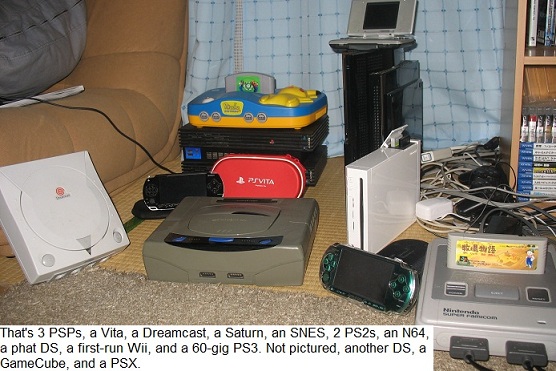
Beyond that, my TV only has so many input sockets, even including the multi-source adapters and such, and my living room only has, you know, so much space in it. This is an especially big problem in Japan and Korea, where houses tend to be much smaller than North America, as physical space is at a premium. I've found that electrical outlets tend to be fewer in number as well, here in Japan; that's not a show-stopper, but every pain in the ass is something to consider.
"But Japan's game market isn't as big as NA or EU anymore!"
This argument is puzzling, because it implies that somehow, making less money is good. I understand that you can't put the bigger part of your focus on the smaller part of your market, but ignoring it entirely is a stupid friggin' idea, especially when such a preference is shared by (if the internet is any indication) a lot of very vocal people in other territories. Money is money; customers are customers. Companies need to be efficient with their resources, but one shouldn't underestimate the ways in which people will support things that are important to them. Backward compatibility is something important to me, and gaming is part of my lifestyle. I'm willing to put money towards it in the way other people spend money on whatever it is they might buy.
"Well, we never had backward until recently! We were fine before!"
Truly, it's always easy to move up, but never easy to move down. Once you've had an HD TV for a while, it can be hard to go back to an old tube. Once you've lived in a six-bedroom house with a deck and three floors, it's hard to move into an apartment where your bed is a loft, your hallway is single-file, and your toilet is in the shower.
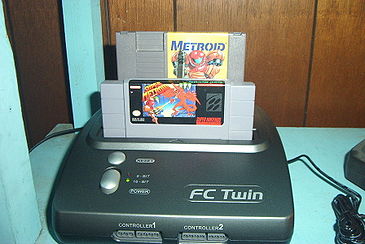
More to the point, though, it's never been as possible as it is now, thanks to Sony's home console games having never been in cartridge format. The disc-based GameCube being able to play N64 cartridges just wasn't as feasible as a disc-based system playing other disc-based games. The types of optical discs used in each does indeed vary, but an optical disc player being able to handle multiple formats is not unheard of.
Both of Sony's consoles, after its first, have included hardware-based backward compatibility (at least to start), so it seems like a step, ahem, *back* to not have any kind of backward compatibility in PS4. It was taken out of the PS3 to reduce cost later, and what happens now? HD collections and PSOne/PS2 classics. These things are in high demand, and when they come out, they sell. What this indicates to me is that a large part of the "you know, I never really play old games" crowd isn't playing the previous gen's games simply because doing so is a cluttersome pain in the ass. Maybe some of those people would enjoy doing so if it were, you know, possible?
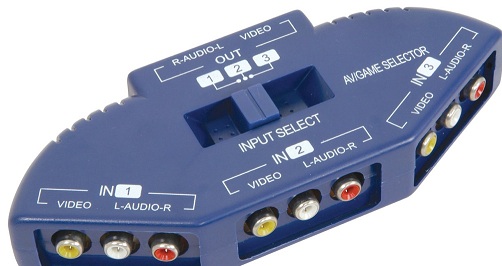
Playing old games might not always put more money in the pockets of their makers so many years after the release, but they can open people up to new experiences and keep those companies and franchises in the spotlight and on people's minds. One of the most popular types of article on game websites is a list of which PS2 or PSOne classics we want released next, because there are still a mountain of them that haven't made it to the store. Some, seemingly, never will.
Additionally, it can have an indirect profitability, in that every new console is someone's first console. These are the gamers who are most likely to be interested in the games of the past. Their willingness to buy bargain bin or second-hand copies of old games puts more money in the pockets of the gamers who sold them. And where might that money go? Any number of places, but a likely story could be that someone is now buying a new game or accessory with that cash. And the circle of life continues.
Gaming is important. It's an important medium that has great impact on our lives, our culture, and our history; we see more evidence of it every day. If we discard backward compatibility, we disregard part of our history, and part of our passion. What was once only for social outcasts and tech "geeks" is now popular culture, and dare I say, rightly so. In order to continue taking these strides, the medium needs a sense of identity and self-worth, otherwise gaming will always be a scapegoat for insane behavior and incomplete homework, rather than recognized as the beautiful thing that it truly is.
There are some things you can't put a price on, my friends.
